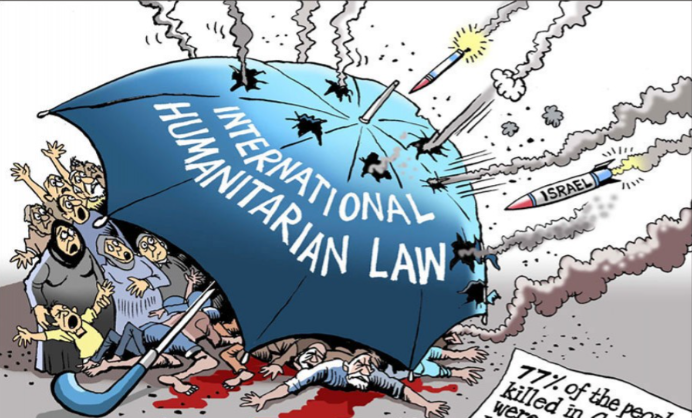Introduction
International Humanitarian Law (IHL) also known as “Law for Armed Conflict” is a set of rules that works to limit the effects of armed conflicts. It particularly shields the people who are not directly involved in any breach to originate hostilities, and it also puts an end to means and methods that encourage warfare. IHL is a part of International Law which is made up of customary laws, treaties and general principles of law.
Origins of IHL
It all started in the 19th century, with the adoption of the Geneva Convention in 1864 for the amelioration of veterans wounded in war and the declaration of Saint Petersburg in 1868 which stressed on prohibition of using certain projectiles in warfare.
“The rules of IHL strike a careful balance between humanitarian concerns and military requirements of states and non-state parties to armed conflict”
The IHL addresses a broad range of issues, including the protection of wounded, sick and shipwrecked members of the armed forces; protection for the civilian population and civilian objects; and restrictions on the use of certain weapons and methods of warfare.
When does IHL apply?
IHL governs armed conflict. Apart from a few obligations that require implementation in peacetime, it does not apply outside armed conflict. IHL applies once the condition of an armed conflict are factually met on the ground. It applies equally to all sides, regardless of who started the brawl and regardless of motives.
What does IHL cover?
• The protection of those who are no longer, directly taking part in any hostility.
• The wounded and sick in armed forces in field. (GC 1)
• Wounded sick and shipwrecked members of armed forces at sea.(GC 2)
• Prisoners of war. (GC 3)
• Civilians. (GC 4)
Most of GC 4 applied to civilians who find themselves in the hands of a party to the conflict or occupying power of which they are not nationals. Civilians who satisfy this criterion are known as “protected persons”.
How is IHL implemented?
It the responsibility of state to primarily implement this law. They must respect and ensure respect for these rules in all circumstances. States must adopt legislation and regulations aimed at ensuring full compliance with IHL. They must, for example enact laws to provide effective penal sanctions for the most serious violations of Geneva convention that amount to war crimes. IHL treaties must be disseminated, for example,through the use of educational programmes for the armed forces and the general public. Other domestic implementation measures must also be taken, such as: the recruitment and training of qualified and specialized personnel and the production of identity cards and other documents for protected persons.
Difference between IHL and Human Rights Law.
There are similarities between some of the rules of IHL and human rights law. Both bodies of law strive to protect the lives, health and dignity of individuals. However, these two branches of public international law have developed separately, have different scopes of application and are contained in different treaties. In particular, human rights law – unlike IHL – applies during both armed conflict and peacetime, although some of its provisions can be derogated from during an armed conflict.

